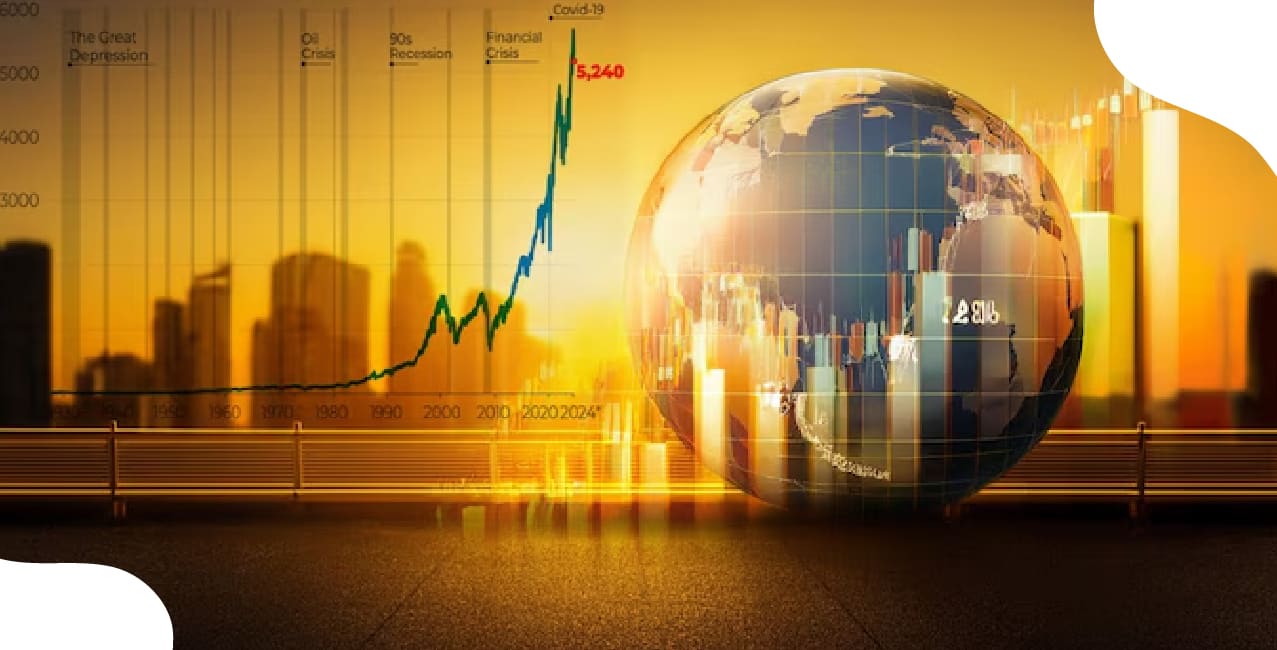What is an economic indicator, and what is its role in forecasting

Check Your Loan Eligibility Now
By continuing, you agree to LoansJagat's Credit Report Terms of Use, Terms and Conditions, Privacy Policy, and authorize contact via Call, SMS, Email, or WhatsApp
An economic indicator is the economy's report card. It allows us to determine whether the economy is doing well or struggling.
For example:
Let's say Jetha Lal owns a small store in Gokuldham. People will have more money to spend if he sells more chai (₹20 per cup) and samosas (₹15 each) this month than last month, which is good for the economy. But a decline in sales may indicate that consumers are saving more or are having financial difficulties.
We can monitor these shifts with the help of economic indicators. They are used to make decisions by governments, corporations, and even aliens (if they research the economy of Earth!).
This article helps you understand what economic indicators are and how they work in simple, everyday life.
How Economic Indicators Help in Forecasting
Economic indicators serve as a nation's economic progress meters or warning lights. They help analysts in forecasting whether the economy will expand, contract, or experience issues in the future.
Take Amber, who owns a toy shop. If she notices:
- More customers are buying toys, people have money, and The Economy is doing well
- Fewer customers are People are saving, and the economy might slow down
Similarly, governments and businesses track significant economic indicators to make informed decisions.
How Forecasting Works:
Gauges that predict, confirm, and display economic performance.
- Leading indicators (like new factory orders) predict future changes
- Lagging indicators (like unemployment) confirm past trends
- Coincident indicators (like GDP) show current economic health
Together, they provide a complete picture of the business cycle.
Below is a simple table that explains how different indicators contribute to forecasting.
Economic Indicators and Their Forecasting Power:
This table illustrates how various indicators function like economic crystal balls.
Anyone, from farmers to property owners, can make better financial choices by being aware of these.
Conclusion
Economic indicators help us predict the future of the economy by serving as a road map. These figures indicate whether the economy is headed for sunny growth or difficult times, much like checking the weather before a trip.
Experts who monitor factors like prices, employment, and spending can either encourage businesses to expand when conditions appear favourable or indicate that they should brace for difficult times.
Knowing these indicators helps average people make better decisions, such as when to start a business, save money, or ask for a raise. Despite their flaws, these indicators offer everyone, farmers, retailers, and legislators, a better opportunity to prepare ahead of time and maintain stability in a constantly shifting economy.
FAQs
1. Which indicator affects my job the most?
The unemployment rate is most important for jobs. When this number increases, finding work becomes more challenging. When it drops, more job opportunities become available.
2. How does inflation impact my savings?
Inflation makes prices rise, so your saved money buys less each year. If inflation is 5%, ₹100 today will only buy ₹95 worth of goods next year.
3. What's the easiest indicator to understand?
GDP (Gross Domestic Product) is the simplest measure; it's like a country's total financial report card. A growing GDP indicates that the economy is performing well.
4. Who creates these economic reports?
Government agencies collect data from businesses, banks, and surveys to calculate these numbers on a monthly or quarterly basis.
5. Can indicators predict a recession?
Some can give early warnings. If multiple indicators (jobs, spending, factory output) keep falling for months, a recession may be coming.
6. How often are indicators updated?
Most essential indicators are updated monthly (such as inflation), while others, like GDP, are updated every 3 months. Job data is usually released on the first Friday of each month.
7. Do these numbers affect my loans?
Yes! When central banks see high inflation, they raise interest rates, making home/car loans more expensive for everyone.
8. Where can I check these indicators?
Government websites, business news channels, and banking apps all show these numbers. Many explain them in simple terms as well.
Other Related Pages | |||
About the author

LoansJagat Team
Contributor‘Simplify Finance for Everyone.’ This is the common goal of our team, as we try to explain any topic with relatable examples. From personal to business finance, managing EMIs to becoming debt-free, we do extensive research on each and every parameter, so you don’t have to. Scroll up and have a look at what 15+ years of experience in the BFSI sector looks like.
Subscribe Now
Related Blog Post
Recent Blogs
All Topics
Contents
Quick Apply Loan
Consolidate your debts into one easy EMI.
Takes less than 2 minutes. No paperwork.
10 Lakhs+
Trusted Customers
2000 Cr+
Loans Disbursed
4.7/5
Google Reviews
20+
Banks & NBFCs Offers
Other services mentioned in this article








